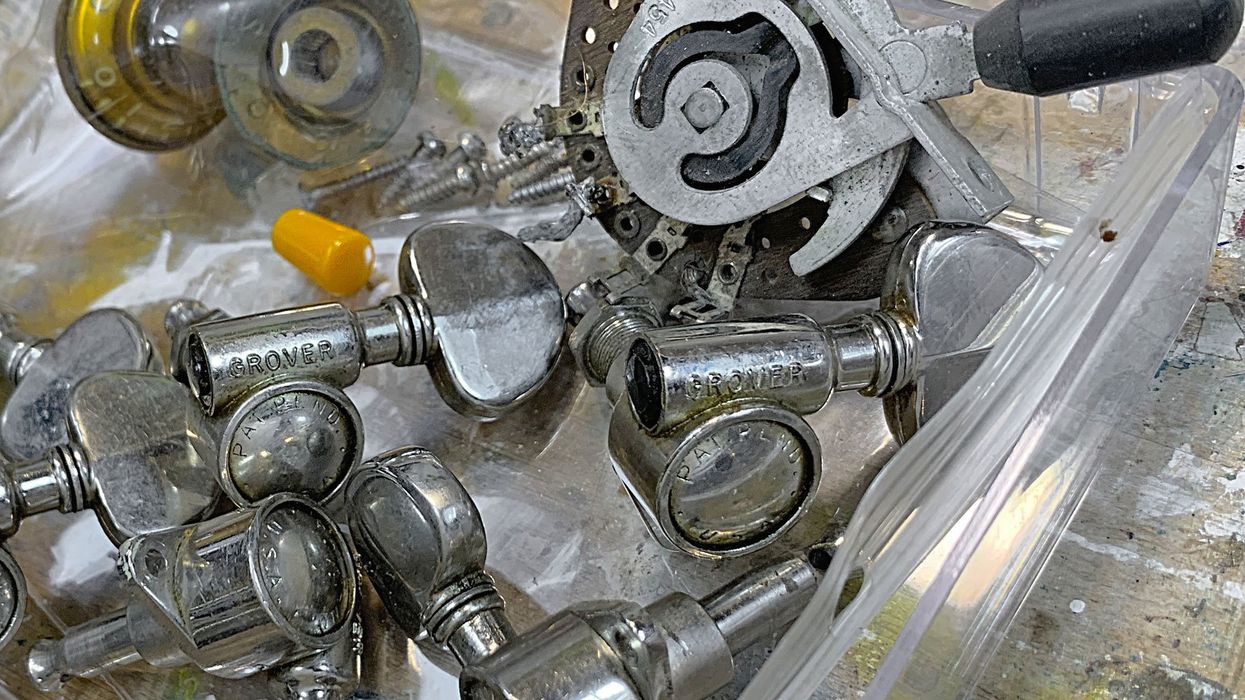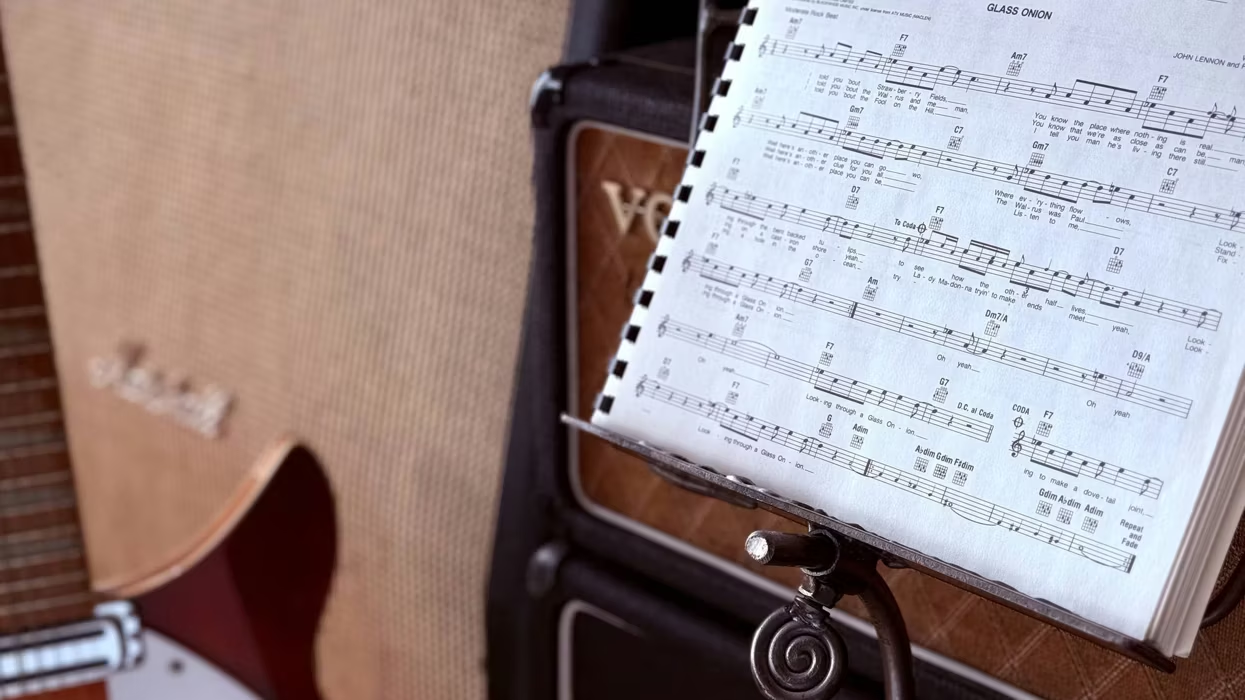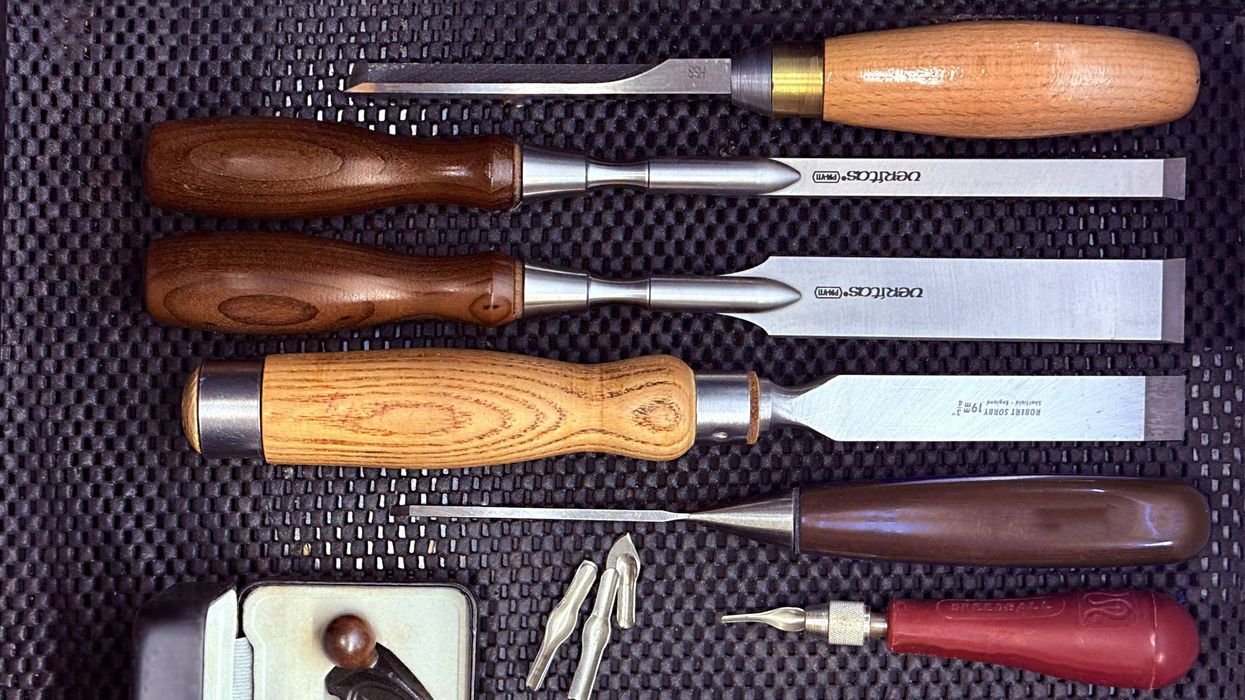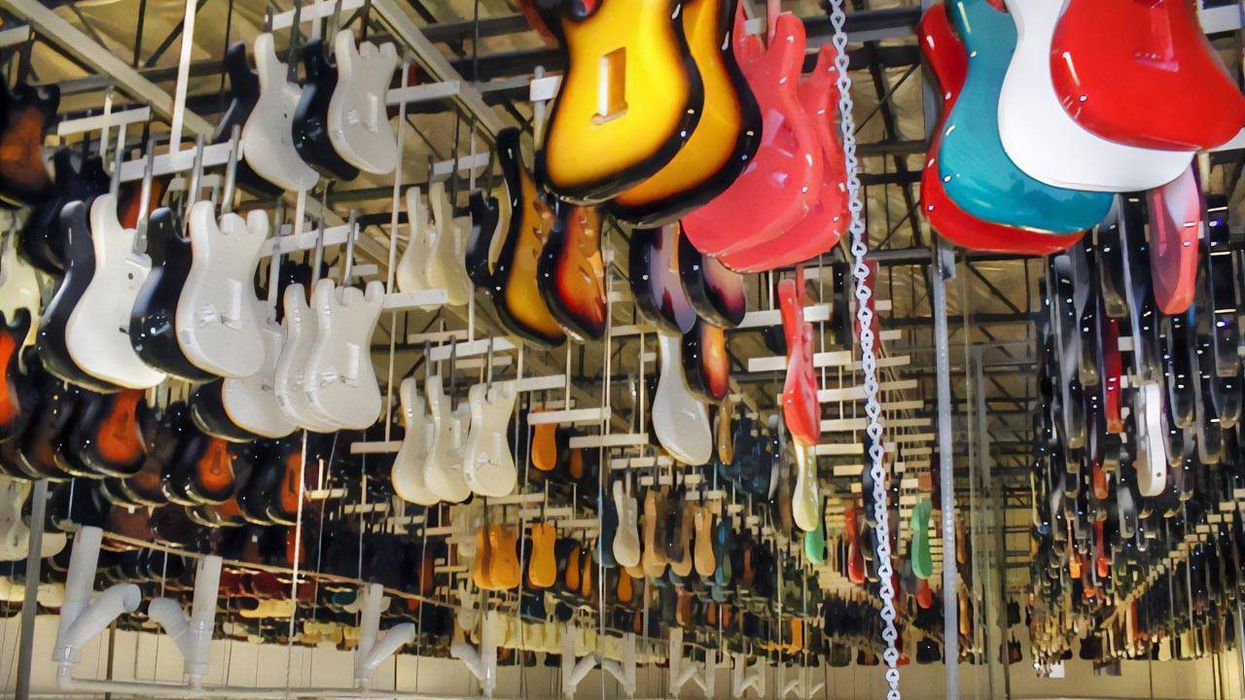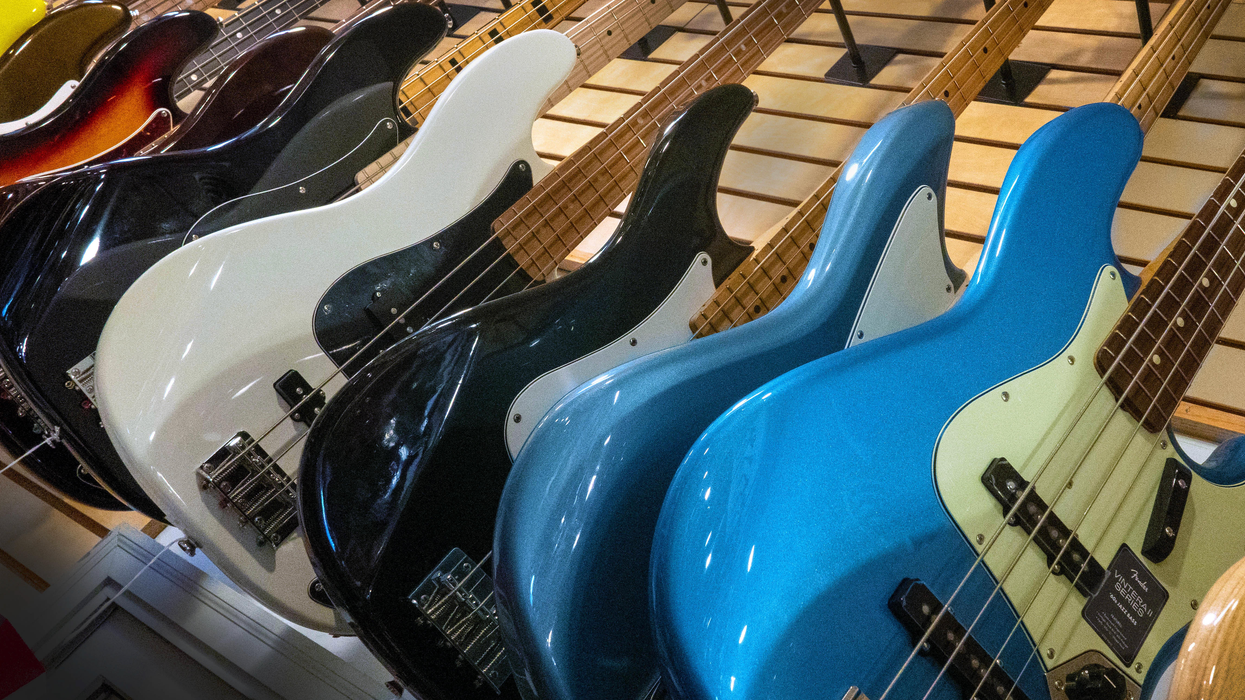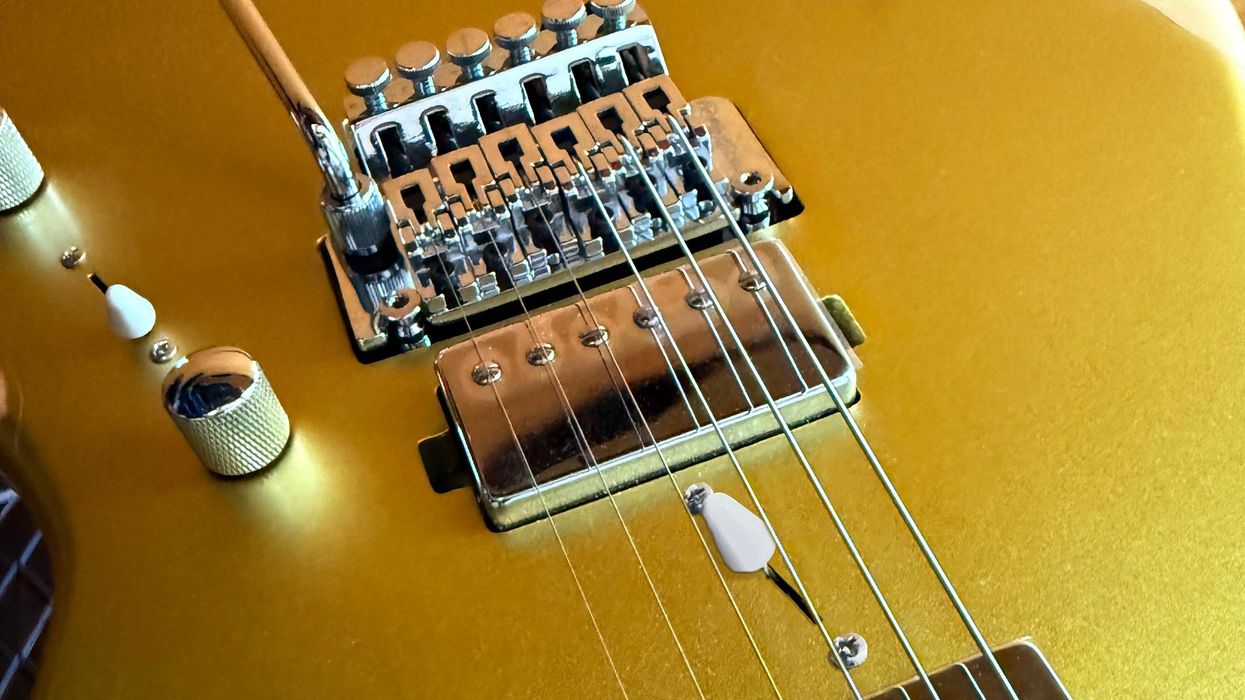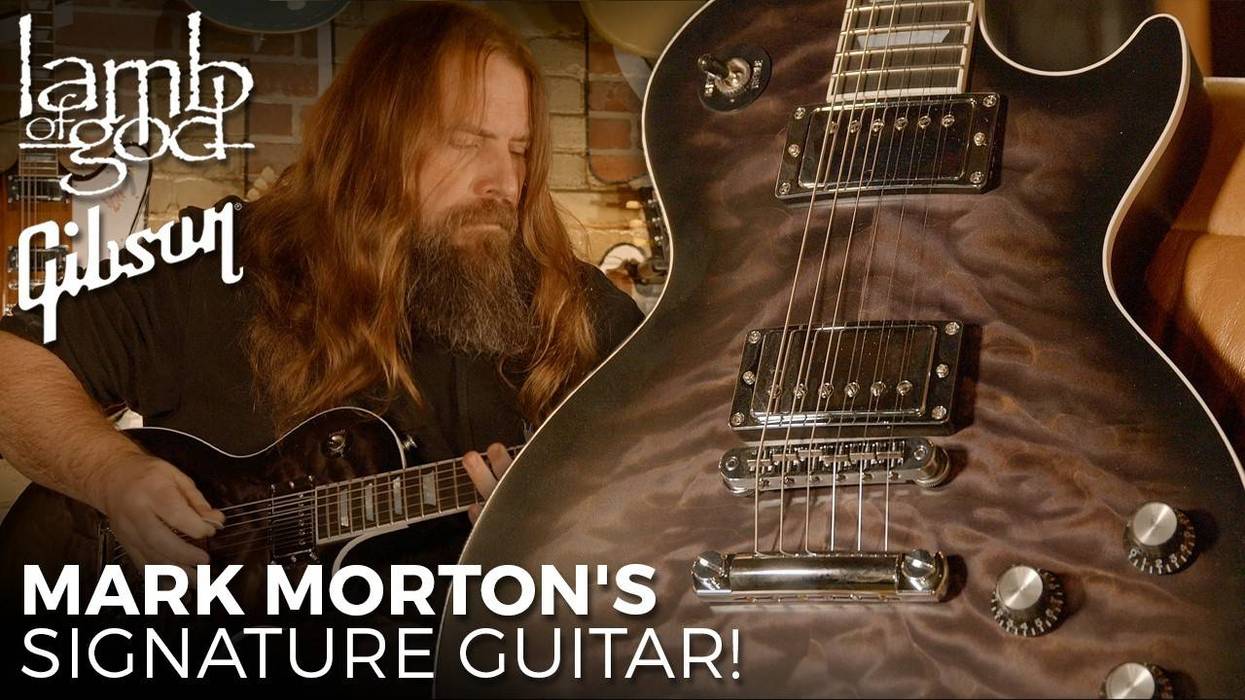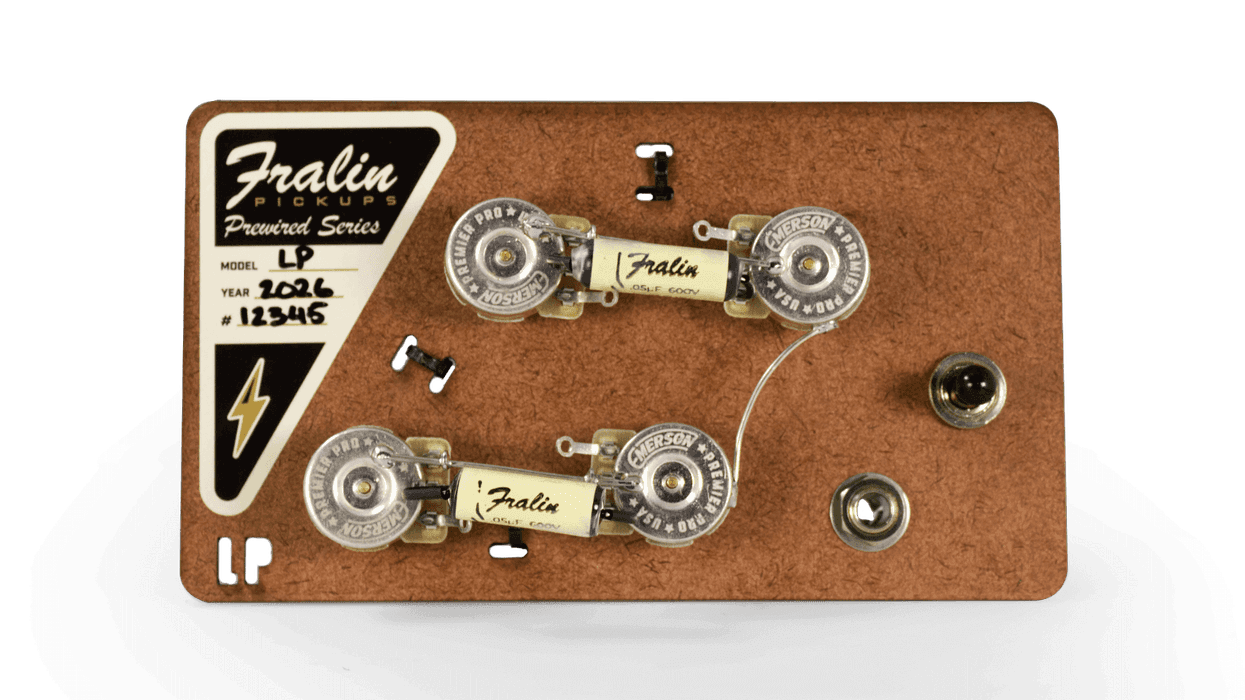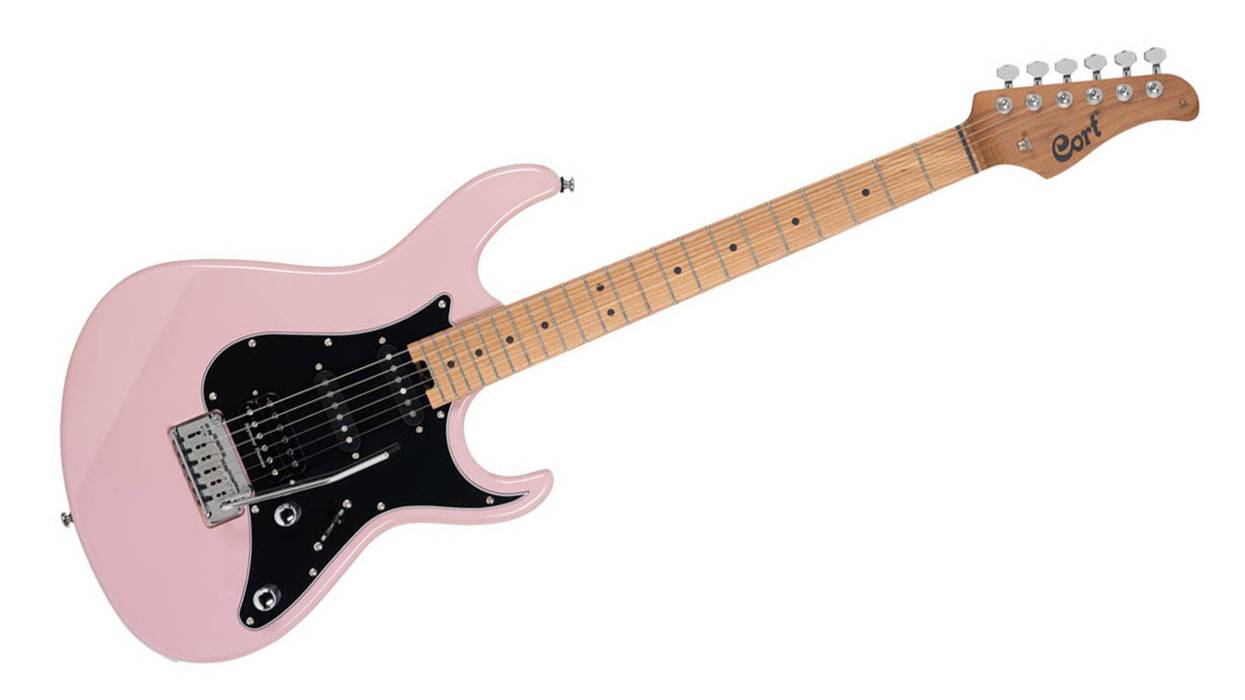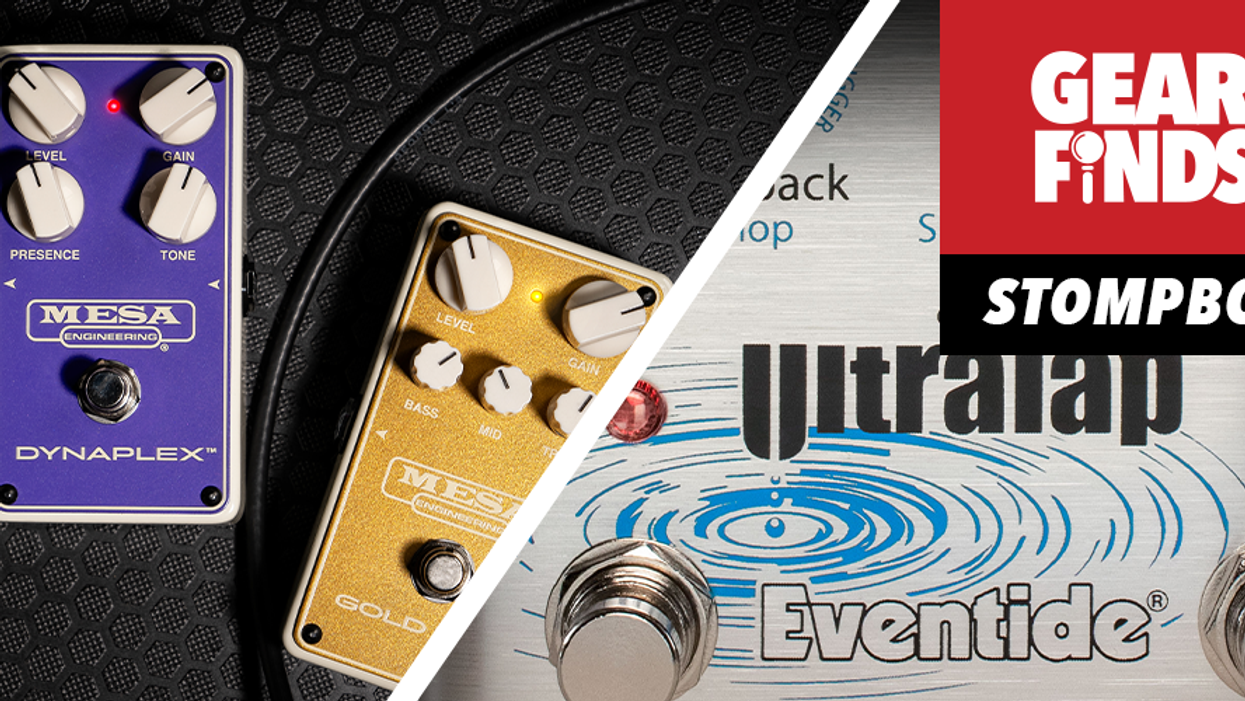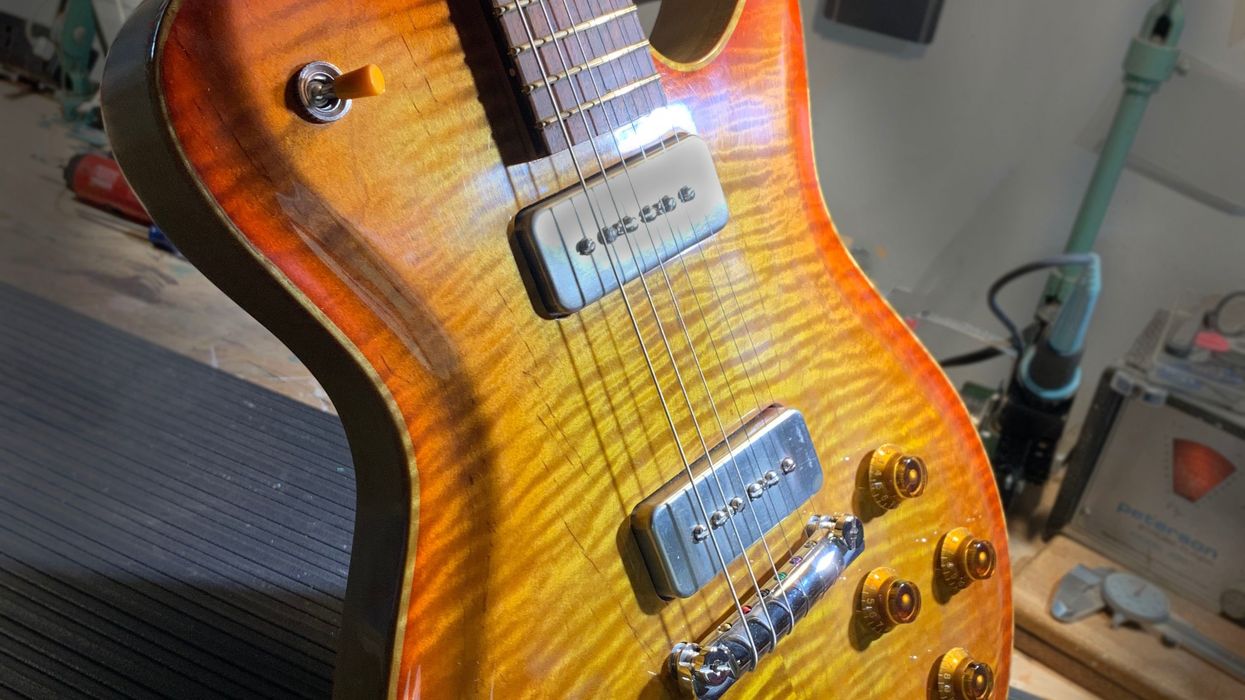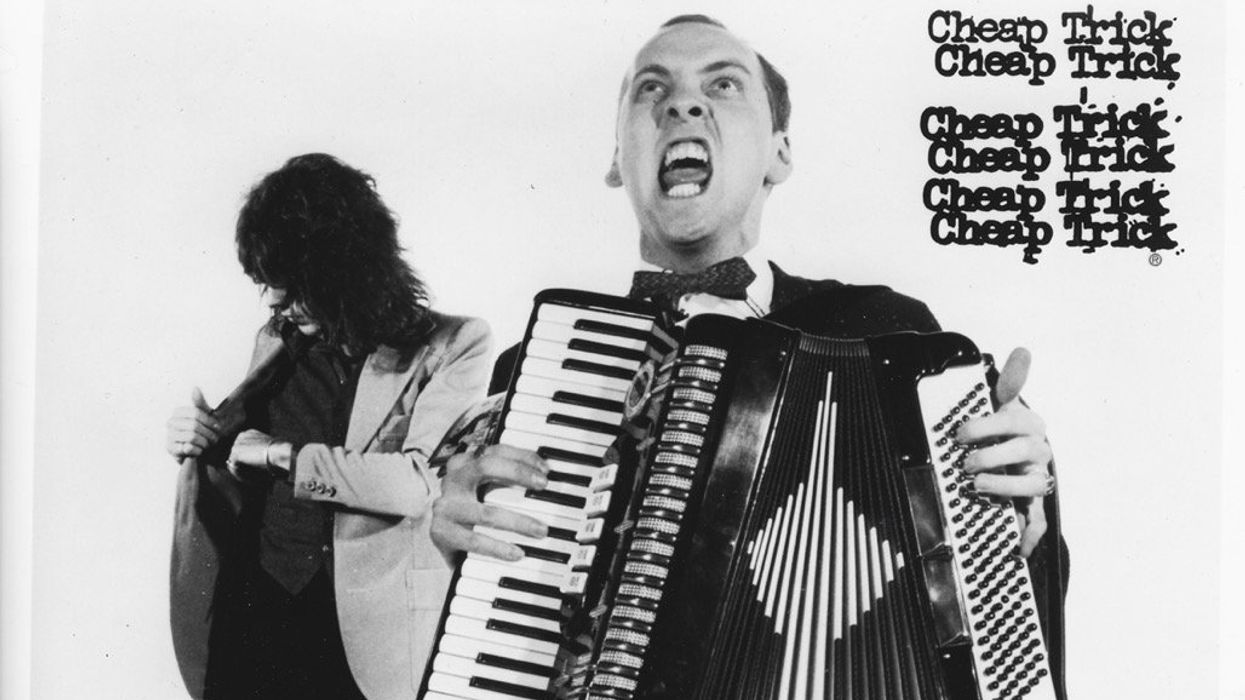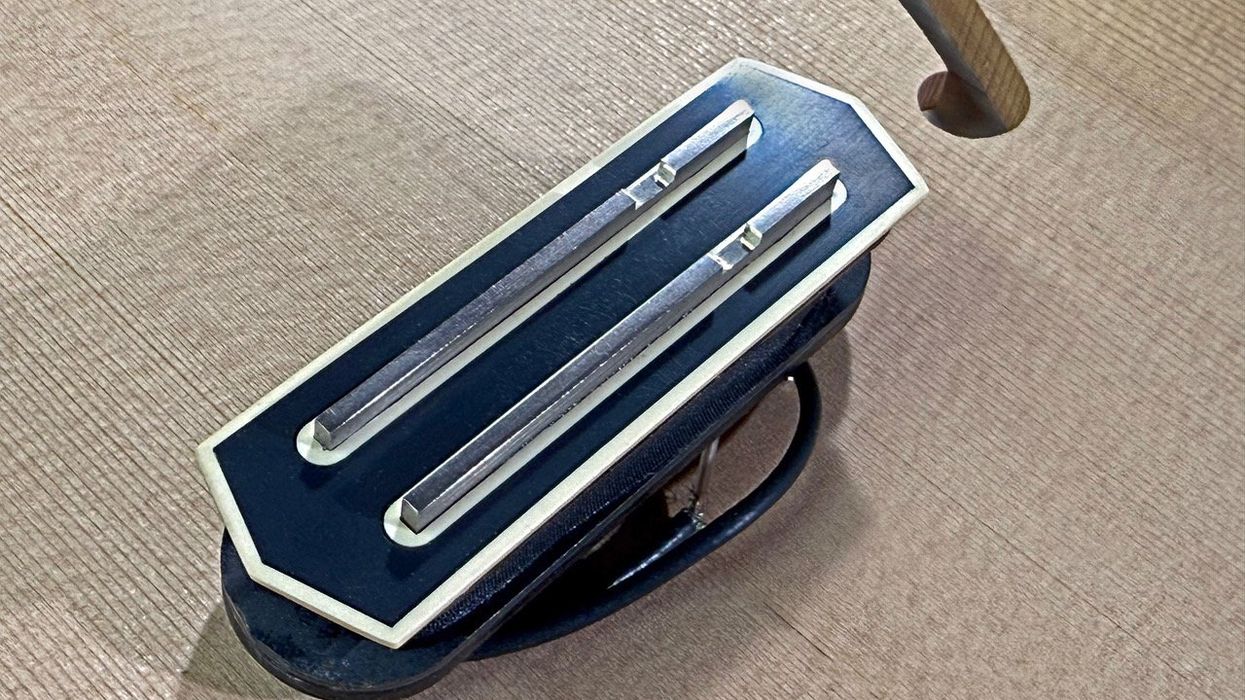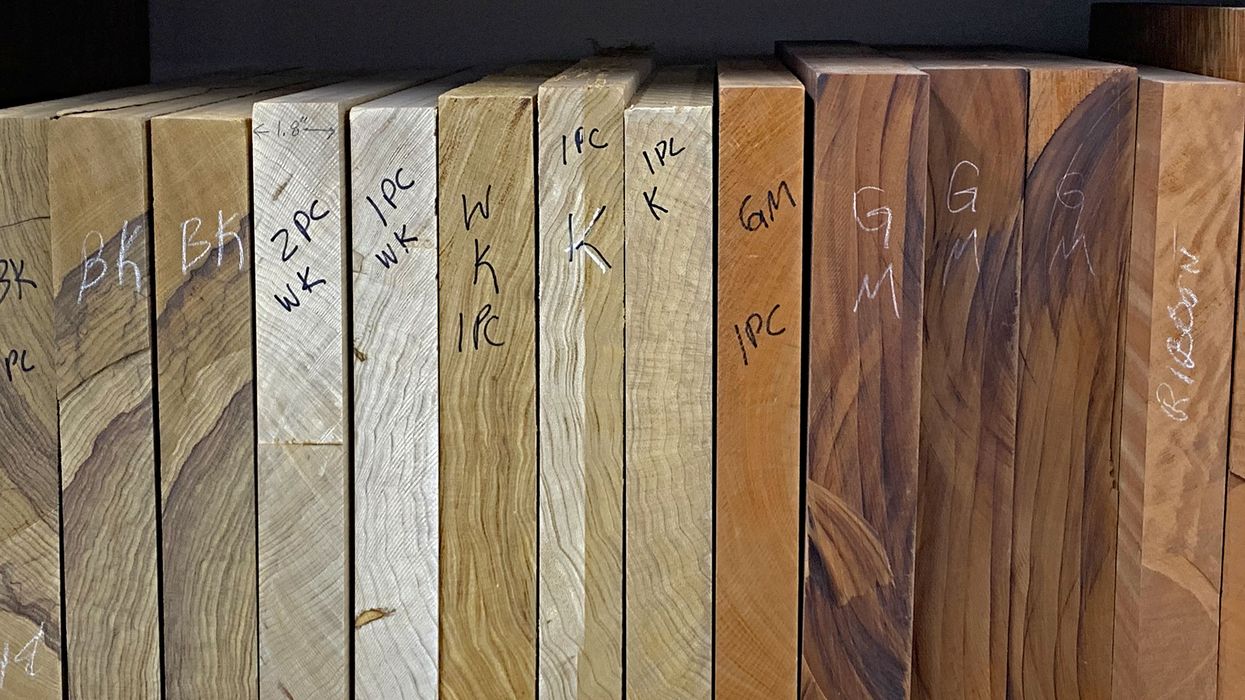I’ve got stuff. Lots of stuff. It fills up my home and my shop. One of the many things that I’ve collected over the years are backstage passes. My occupation has taken me to a lot of shows—sometimes two or three a night. I’d come home and throw the evening’s pass into a box on a shelf in my coat closet. When the box got full, instead of tossing it, I’d put it away and start another one. This went on for decades. I probably just saved those passes for the same reason I’ve wound up with a lot of things—I like stuff. But not just any stuff. I like good stuff, quality stuff, interesting stuff. As a consequence, I have a lot of it. I’m betting a lot of you do too. Maybe you started young, by collecting trading cards. Maybe you came to it later in life. Maybe you’re thinking of tossing off the anchor and sailing away free.
In my dreams, I have a grand garage sale. I see table after table of NOS tubes, capos, cords, pedals, and straps, all laid out neatly and tagged with reasonable prices. There would be cabinets full of tools and electronic gizmos from ages past. I imagine a spread of guitars on stands and amplifiers lined up neatly like buildings on a boulevard—all plugged in and ready to demo. I’d say goodbye to all those years of guitar and automobile magazines organized neatly on my bookshelves, along with books about those two subjects. There would be a section for microphone and music stands, photo lights, cameras, and microphones. It would be a picker’s dream come true. Somehow this exercise gives me a warm and fuzzy feeling, and I’m not sure why, because I love my stuff.
So, why do we cling to these artifacts? You might say it’s your hobby, or if you are a pro, they are work tools. But that’s not the whole story. When I started playing, guitarists didn’t have collections. Professionals had one or two main guitars and maybe a 12-string. If you broke a string onstage, you’d either change it while talking to the audience or grab your one backup guitar. Studio cats might have accumulated a small array of stringed instruments (like banjos or mandolins) that they could deploy as needed in order to secure more work, but even some of the legends would borrow when the situation called for something different. Running parallel with the normalization of mass consumerism, it has become acceptable to own more than one or two guitars—maybe even 20.
"When I started playing, guitarists didn’t have collections. Professionals had one or two main guitars and maybe a 12-string."
That’s probably why when you think of the classic acts, you naturally picture those players with a certain guitar. John Lennon had his black Rickenbacker and George Harrison had his Gretsch. Paul McCartney is forever associated with Höfner. Clapton you have to define by era, but a few, like his “Fool” SG and his Bluesbreaker Les Paul—superseded by his now ubiquitous Stratocaster—were and are touchstones. When you think David Gilmour, you see a Strat. Likewise Rick Nielsen with his Hamer “Explorer” and Randy Rhoads on a white Les Paul. As different as they are stylistically, Elvis Costello, Thurston Moore, and J Mascis converge on the Jazzmaster. I could go on. For the first 40 years of its existence, the electric guitar wasn’t much of a collectible. But as we stand here today, most of us have a gaggle of guitars that may or may not be a collection.
So, do we or don’t we have collections? When I use a good piece of gear, whether it’s a guitar or a chisel, I feel joy. It’s a feeling that goes beyond mere possession, and it’s not just that the widget works. It’s recognizing that years of experience have led me to the point of knowing what quality is and why it’s important. I’ve read that holding on to physical things is hanging on to the past when we should be living in the present. I’m not going to dispute that, but my stuff and I have a grip on each other that’s more like a friendship than a psychological hardship. I’m not a working pro, but music has been my life since I was 12, and I don’t apologize for that.
Should I pare down my tools? Would I be happier without a selection of fine instruments? Perhaps purging the tonnage of stuff that anchors me down would open up a whole new take on life, but I’m not ready. Maybe you’ve thought about this too, but I wouldn’t worry too much. Chalk it up to whatever you like, but I’m fine with it for now, and I adore finding new things that make my life a little easier, and maybe a little more joyous.


